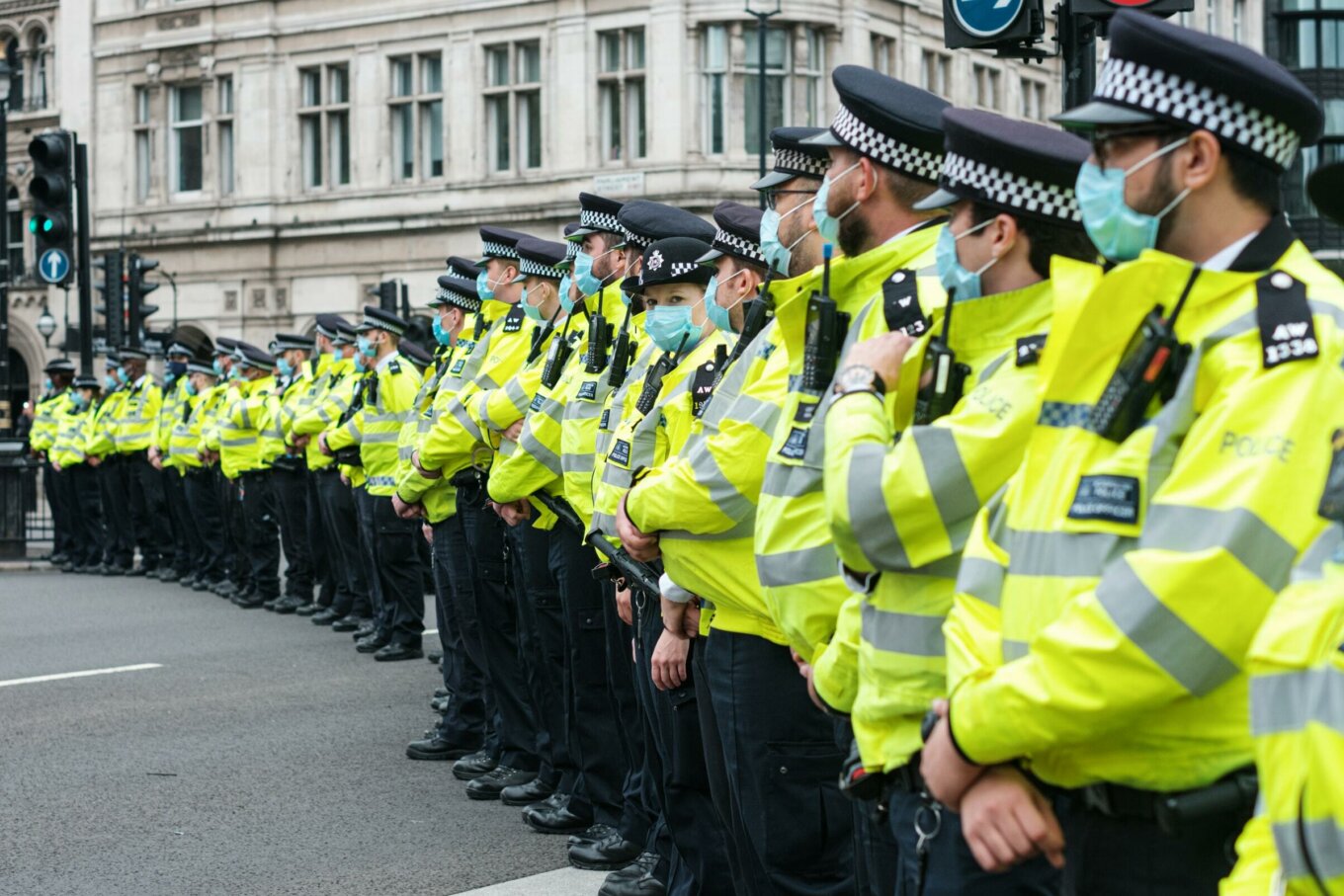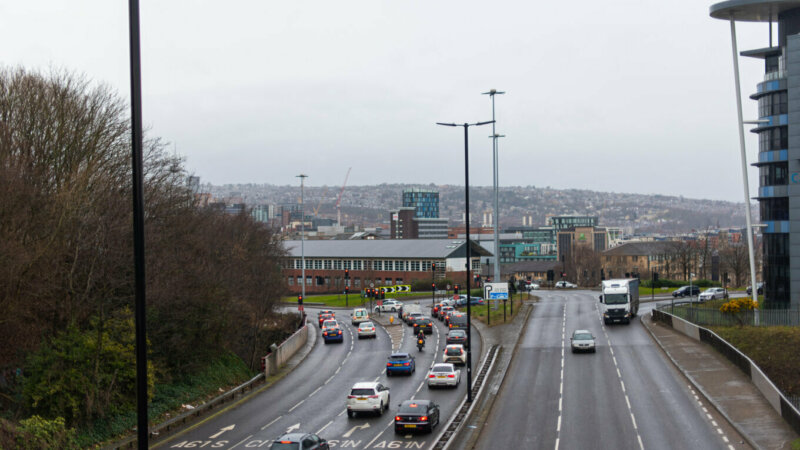The Government’s new Policing Bill is a threat to Sheffield’s proud tradition as a city of protest
The right to protest is the cornerstone of our democracy and without it our country would be unrecognisable, writes Sheffield MP Olivia Blake.

The Police, Crime, Sentencing and Courts Bill will increase police powers to ban protests deemed to cause “serious annoyance”.
Ehimetalor Akhere Unuabona on Unsplash.The City of Sheffield has a long, proud tradition of protest - protests which in many cases have shaped the course of history.
The mass demonstrations and silent-occupations of the Sheffield Chartists in Paradise Square in the 1800s played a central role in the wider tactics of the Chartist movement. The Sheffield suffragettes who took to the streets time and time again - and in one instance, stormed the Cutler’s Feast - were pivotal in the fight for women’s suffrage. The Sheffield Clarion Ramblers led the Kinder Scout mass trespass, an act of civil disobedience which paved the way for the National Parks Act and the right to roam that we enjoy today. The history books are scattered with references to Sheffield-based protests which have built movements, won rights and ended injustices.
This history - and our city’s continued tradition of protest - is in part why I'm so proud to represent a Sheffield constituency.
Right now, people across Sheffield are taking to the streets. The Sheffield IWGB couriers, whose rally I joined last month, are striking against a 24% cut to their pay. Their strike now represents the longest, continuous gig economy strike in British history. Unite Stagecoach bus drivers are also striking against pay cuts and have held regular pickets at depots across the region.
Our city is also home to a huge climate movement, from Sheffield Extinction Rebellion, whose civil disobedience has helped put climate action on the agenda, to the hundreds of people who turned out on the streets of Sheffield in November to demand climate justice from world leaders at COP26. Or the midwives from Sheffield Teaching Hospitals who held a demonstration in the city centre to protest staff shortages and worsening conditions. Or Acorn Sheffield’s protests outside dodgy letting agents; Sheffield Black Lives Matter’s demonstrations in the wake of the George Floyd murder; protests against the Anti Refugee Bill; Our Socialist Choir’s songs in solidarity with Palestine; the vigils after the death of Sarah Everard. Our city is home to so many activists and campaigners, working to once again change the course of history.
But this proud tradition is under threat. The Government’s Police, Crime, Sentencing and Courts Bill seeks to quietly restrict protests and criminalise protesters. The bill will increase police powers to ban protests which are too noisy or deemed to cause “serious annoyance”. It will give the Home Secretary discretion over what types of protests are allowed, effectively granting any minister now or in the future the ability to suppress protests that they don't agree with. As well as increasing the maximum penalty for those taking part to up to ten years in prison, it also lowers the threshold for committing such an offence, with organisers facing prison time if they merely ought to have known that a restriction had been placed on the protest.
If this bill wasn’t already dangerous enough, the Government has bypassed proper parliamentary scrutiny by tabling a further 18 pages of amendments which go even further: preventing protesters from blocking major transport routes, expanding power to stop-and-search people “without suspicion”, and introducing protest ASBOs which allow the police to ban named individuals from attending any protest at all.
The right to protest is the cornerstone of our democracy. Without it, our country would be unrecognisable. Women would not have won the vote; there would be no National Health Service; parliament would not have declared a Climate Emergency.
Under this bill, Sheffield suffragette Adela Pankhurst, who stormed the Cutlers’ Feast in 1908, could have been banned from attending any future protests for women’s suffrage, or any other issue for that matter, ever. The Clarion Ramblers could have faced up to ten years in prison, potentially without their knowledge, for helping organise a mass trespass which the Government deemed too loud or too annoying to the landed gentry.
Nothing has changed. The Tories are pushing ahead with their draconian #PolicingBill which which will -
— Olivia Blake MP (@_OliviaBlake) July 5, 2021
❌Extend police powers & erode our #RightToProtest
❌Further criminalise & discriminate against the GRT community
I will be opposing this Bill in Parliament today. https://t.co/rnXa0qxaoE
Without the right to protest, we stand no hope of addressing the multitude of crises facing our country, and planet, today. To address the climate and nature emergency and bring about climate justice, we need to deepen democracy, not erode it. To tackle the standard of living crisis that people in our city are facing, workers need to be able to picket bad bosses, not face punishment for standing up for their rights at work. Just when we need more people than ever to raise their voices, our city will be silenced, with the very threat of the measures in this bill deterring people from marching on the streets.
So what can we do? On the 17th January the Lords will get the opportunity to vote on the new amendments to the bill. They won’t be able to change everything, but they can make it harder for the Government to pass some of the worst elements. I am calling on everyone in our city and beyond to contact members of the House of Lords now and ask them to vote down these new amendments. I am also encouraging those who are able to attend the rally this Saturday 15 January at 2pm at the Town Hall, and I will be holding a meeting in the coming weeks with individuals and campaign groups across our constituency to discuss what more we can do to step up our response to this draconian bill.
This isn’t just a fight for our right to protest. It's a fight for our right to be able to continue to shape the world around us. It's a fight for democracy. If our history is anything to go by, people in Sheffield will be at the forefront of this fight - and I will be standing with them.







